And for this, you call him "an imperious sort of chap very angry if he is opposed," but add, that you "bear him for it no malice, and like him none the less for that." Now THIS IS NOT SO, my brother, and YOU KNOW IT. However, I am prepared to concede the definition in a limited sense, and to admit and repeat with you (and himself at my elbow) that he is a very imperious sort of chap, and certainly very apt sometimes to become angry, especially if he is opposed in what he knows to be right. Would you think more of him, were he to conceal his anger; to lie to himself and the outsiders, and so permit them to credit him with a virtue he has not? If it is a meritorious act to extirpate with the roots all feelings of anger, so as to never feel the slightest paroxysm of a passion we all consider sinful, it is a still greater sin with us to pretend that it is so extirpated. Please read over the "Elixir of Life" No. 2 (April, p. 169 col. 1, paras. 2, 3, 4, 5, and 6). And yet in the ideas of the West, everything is brought down to appearances even in religion. A confessor does not inquire of his penitent whether he felt anger, but whether he has shown anger to anyone. "Thou shalt in lying, stealing, killing, etc. avoid being detected" — seems to be the chief commandment of the Lord gods of civilization — Society and Public opinion. That is the sole reason why you, who belong to it, will hardly if ever be able to appreciate such characters as Morya's: a man as stern
Letter №74
Letter 74 (ML-30)
Mahatma K.H. - A.P. Sinnett/A.O. Hume
August, 1882
Pages - 26.
Page 12
for himself, as severe for his own shortcomings, as he is indulgent for the defects of other people, not in words but in the innermost feelings of his heart; for, while ever ready to tell you to your face anything he may think of you, he yet was ever a stauncher friend to you than myself, who may often hesitate to hurt anyone's feelings, even in speaking the strictest truth. Thus, were M. one to ever descend to an explanation he could have told you: "My Brother, in my opinion you are intensely egotistical and haughty. In your appreciation and self-adulation you generally lose sight of the rest of mankind, and I verily believe that you regard the whole universe created for man, and that man — yourself. If I cannot bear to be opposed when I know I am right, you can bear contradiction still less, even when your conscience plainly tells you that you are wrong. You are unable to forget — though I admit that you are one to forgive — the smallest slight. And, sincerely believing yourself to have been so slighted, by me (sat upon — as you once expressed it) to this day the supposed offence exercises a silent influence over all your thoughts in connection with my humble individual. And though your great intellect will ever prevent any vindictive feelings from asserting themselves and thus over-ruling your better nature, yet they are not without a certain influence even over your reasoning faculties, since you find pleasure (though you will hardly admit it to yourself) — in devising means to catch me tripping to the length of representing me in your imagination a fool, a credulous ignoramus capable of falling into
Page 13
the traps of a — Fern! Let us reason, my Brother. Let us put entirely aside the fact of my being an initiate, an adept — and reason out the position your imaginative faculties have created for me, like two common mortals with a certain dose of common sense in mine, and a great dose of the same in your head. If you are prepared to concede me even so little, I am prepared to prove to you that it is absurd to think that I could have been taken in in the meshes of so poor a scheme! You write that in order to test me, Fern wanted to know "if Morya wished it (his vision) published — and Morya replies quite falling into the trap that he did wish it." Now, to credit the last assertion is rather hard; and it needs a man of but moderate good sense and reasoning powers to perceive that there are two insuperable difficulties in the way of reconciling your foregoing opinion of myself and the belief that I was actually caught in the trap. 1st: The substance and text of the vision. In that vision there are three mysterious beings — the "guru" — the "Mighty one" and the "Father"; — the latter one being your humble servant. Now it is hard to believe — unless I am credited with faculties of a hallucinated medium — that I, knowing well that I had never approached, until then, the young gentleman from within a mile's distance, nor had I ever visited him in his dreams — that I should believe the reality of the vision described, or that, at least, my suspicions should not have been aroused by such a strange assertion.
2nd. The difficulty of reconciling the double fact of my
Page 14
being "an imperious chap" who gets very angry when opposed, and, my quiet submission to the disobedience, the rebellion of a chela under probation, who upon learning that "Morya did wish it — i.e. to have his vision published — and had actually promised to rewrite it, never thought of obeying the wish after that, nor had the poor fatuous guru and "Father" thought any more of the matter. Now the whole of the foregoing would be made quite plain even to a man of an average intellect. The reverse having happened, and a man of undoubtedly great intellectual and still greater reasoning powers, having been caught in the poorest cobweb of falsehoods ever imagined — the conclusion is imperative and no other can be formed: that man allowed, unknown to himself, to have his little vindictive feeling gratified at the expense of his logic and good sense. Buss, and we will talk no more of it. With all that, and while openly expressing my dislike for your haughtiness and selfishness in many things, I frankly recognise and express my admiration for your many other admirable qualities, for your sterling merits, and good sense in everything unconnected directly with yourself, — in which cases you become as imperious as myself, only far more impatient — and heartily hope you will pardon me for my blunt — and according to your western code of manners — rude talk.
Page 15
At the same time, like yourself, I will say, that not only do I not bear you malice, and like you none the less for that — but that what I say is a strict reality, the expression of my genuine feelings, not merely words written to satisfy a sense of assumed duty."
And now, that I have made myself the spokesman unto you for Morya, I may, perhaps be permitted to say a few words for myself. I will begin by reminding you, that at different times, especially during the last two months, you have repeatedly offered yourself as a chela, and the first duty of one is to hear without anger or malice anything the guru may say. How can we ever teach or you learn if we have to maintain an attitude utterly foreign to us and our methods: — that of two Society men? If you really want to be a chela i.e. to become the recipient of our mysteries, you have to adapt yourself to our ways, not we to yours. Until you do so, it is useless for you to expect any more than we can give under ordinary circumstances. You wanted to teach Morya, and you may find out, (and will if I am allowed by M. to have my own way) that he has taught you one, which will either make us friends and brothers for ever, or, — if there is more of the Western gentleman in you, than of the Eastern chela and future adept you will break with us in disgust and perhaps proclaim it all over the world. For this we are all prepared and are trying to hurry on the crisis one way or the other. November
hurry on the crisis "refers to the end of the first seven year cycle of the TS in November 1882."
Page 16
is fast approaching and by that time everything has to be settled. The second question: do not you think good Brother, that the uncivilized, imperious chap who would tell you his mind, honestly and for your own good, and, at the same time would be carefully though unseen — protecting yourself, family and reputation from any possible harm — aye, brother, to the length of watching for nights and days a ruffian Mussulman menial bent upon having his revenge of you and actually destroying his evil plans — do not you think him worth ten times his weight in gold, a British Resident, a gentleman, who tears down your reputation to shreds behind your back and will smile upon and heartily shake hands with you whenever he meets you? Do not you think that it is far nobler to say what one thinks, and having said — that even which you will naturally regard as an impertinence — and then render to the person so treated all manner of services of which he is never likely to hear not only to find them out — than to do what the highly civilized Colonel or General Watson and especially his lady have done, when upon seeing for the first time in their lives the two strangers in their house — Olcott and a native judge in Baroda — took a pretext to disparage the Society — because you were in it! I will not repeat to you the lies they were guilty of, the exaggerations and slanders directed against you by Mrs. Watson, and corroborated by her husband — the gallant soldier,
Page 17
so struck and unruffled was poor Olcott, by the unexpected attack — he who feels so proud of your belonging to the Society that he appealed in his dismay to M. Had you heard what was told by the latter of you, how much he appreciated your present work and frame of mind you would have willingly conceded him the right of being occasionally apparently rude. He forbade him telling any more than what he had already told to H.P.B. and which — woman-like — she immediately imparted to Mr. Sinnett — though angry as she was with you at the time even she resented the insult and offence done to you deeply — and went actually to the trouble of looking back into that past when as Mrs. Watson said you were receiving the hospitality at their house. Such is then, the difference between alleged well wishers and friends of Western superior origin, and the as alleged-ill-wishers of the Eastern inferior race. Apart from this I concede to you the right of feeling angry with M.; for he has done something that though it is in strict accordance with our rules and methods, will, when known be deeply resented by a Western mind, and,
Page 18
had I known it in time to stop it, I would have certainly prevented it from being done. It is certainly very kind of Mr. Fern to express his intention "to catch" us — "not of course to expose the Old Lady," for what has the poor "Old Lady" to do with all this? But he is quite welcome to catch us and even to expose us, not only for his and your protection but for that of the whole world if it can in any way console him for his failure. And fail he will, that's certain, if he goes on in that way playing a double game. The option of receiving him or not as a regular chela — remains with the Chohan. M. has simply to have him tested, tempted and examined by all and every means, so as to have his real nature drawn out. This is a rule with us as inexorable as it is disgusting in your Western sight, and I could not prevent it even if I would. It is not enough to know thoroughly what the chela is capable of doing or not doing at the time and under the circumstances during the period of probation. We have to know of what he may become capable under different and every kind of opportunities. Our precautions are all taken. None of our Upasika or Yu-posah, neither H.P.B. nor O., nor even
Page 19
Damodar, nor any of them can be incriminated. He is welcome to show every letter in his possession, and to divulge that, which was offered to him to do, (the choice between the two paths being left at his option) and that which he has actually done, or rather not done. When the time comes — if it ever comes to his misfortune — we have the means to show how much of it is true, and how much wrong and invented by him. In the meanwhile, I have an advice to offer. Watch and do not say a word. He was, is, and will be tempted to do all manner of wrong things. As I say, I knew nothing of what was going on till the other day; when learning that even my name was indirectly mixed in the probation, I warned whom I had to warn, and forbid strictly my own business being mixed up with it. Yet, he is a magnificent subject for clairvoyance, and not at all as bad as you think him. He is conceited — but who is not? Who of us is entirely free from this defect. He may imagine and say what he likes, but that you should allow yourself to be so carried away with a prejudice the existence of which you are not even prepared to admit, is surpassingly strange! You sincerely crediting the statement that M. was humbugged and caught into the trap by Mr. Fern is something really too ludicrous, when even O.
Page 20
not only the "Old Lady" never believed in it, since they knew he was to be under probation, and also knew what the thing meant. M. took pains a few days ago, to prove to you that he was never taken in, as you hoped, and that he laughed at the very idea; and most certainly Olcott will give you a good proof of it, albeit he is in the interior of Ceylon at this moment, where no letters let alone telegrams can reach. Nor was this "fraud" — if you will call it so, ever commenced in our interests, for the simple reason that we have no interest in it — but in that of Mr. Fern and the Society, in the ideas of H.P.B. But why call it fraud? He asked her advice, he worried and supplicated her, and she told him — "Work for the cause; try to enquire and search and so to obtain every evidence you can of the existence of the Brothers. You see they will not come this year, but there are plenty of Lamas descending every year to Simla and the neighbourhood, and so, get all the evidence you can for yourself and Mr. Hume, etc." Is there anything wrong in this? When she received the MSS containing his vision, she asked M. and he who is called in it "the mighty One" and the "Father" and what not, told her the truth and then ordered her to ask Mr. Fern whether he would publish it, telling her and O. beforehand that he would not. What Morya knows of

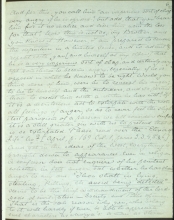
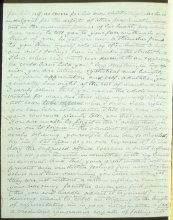
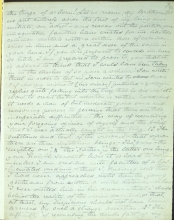
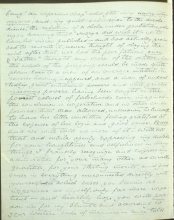
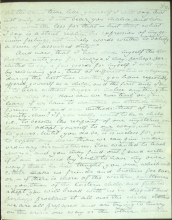
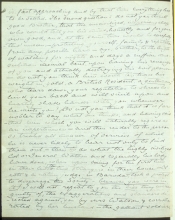
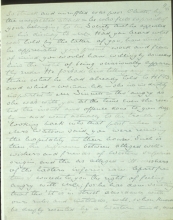
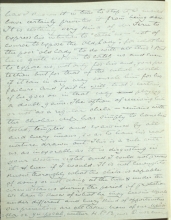
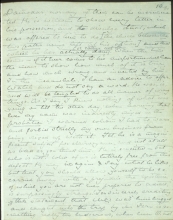
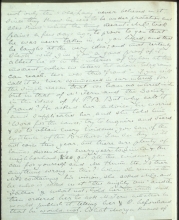

"Elixir of Life" refers to an article in The Theosophist by Moorad Ali Beg (Godolphin Mitford). Here is the fragment referred to by the Master.